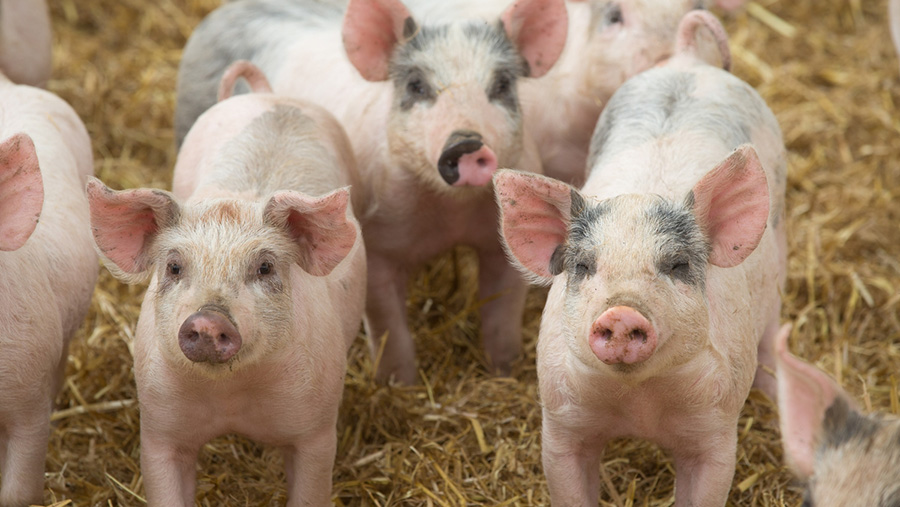Farmers back reintroduction of swill as pig feed, poll finds
 © Tim Scrivener
© Tim Scrivener More than three-quarters of voters in a Farmers Weekly poll backed the legalised use of heat-treated food waste as pig feed.
Despite the result, AHDB and the National Pig Association (NPA) believe the consequences of a disease outbreak offset the potential benefits of reintroducing swill.
In an online poll, Farmers Weekly readers voted in favour of legalising the use of heat-treated food waste for pig feed in the EU.
Of the 64 votes cast more than three-quarters (77%) were for “Yes, land use would be reduced and farmers could save money”.
The remaining 23% voted “No, the risk of an outbreak outweighs the potential benefits”.
AHDB Pork said the result was “out of step” with the view of British pig producers it has spoken to about swill.
The NPA said that while the industry is always on the lookout for cheaper protein options, it was “not sure that we are best placed at the moment to look at this as a serious option.”
Disease outbreak
The Farmers Weekly poll was conducted on the back of a University of Cambridge study, which concluded that revoking the 2002 EU ban on pig swill feeding would see pig farmers realise significant cost savings and reduce land requirement by 21.5% (1.8m ha).
It would reduce the required area for soya bean production by 268,000ha alone, it said.
Researchers from the institute’s Department of Zoology said that reintroducing swill-feeding in the EU could see the costs faced by pig farmers fall by 50% as they swap grain and soya bean-based feed for heat-treated food waste.
See also: Campaign for U-turn on pig swill feed ban
“The case for changing the legislation to allow catering waste as pig feed is well-intentioned but the potential savings gained by this would be negligible when compared to the potential cost of a disease outbreak,” an AHDB spokesman said.
“There is a complicated chain of steps that needs to take place to gather food waste and treat it to make it safe for pigs to eat. It needs a set of very strict controls in place and the standards are difficult to maintain.
“It was a failing of this process that caused the disastrous foot and mouth outbreak in 2001,” the spokesman added.
Cheaper feed?
The feeding of swill to livestock was first banned in the UK in May 2001 following an outbreak of foot-and-mouth disease.
The epidemic, blamed on the illegally feeding of uncooked food waste to pigs, reportedly cost the UK economy around £8bn.
The EU followed suit in 2002 with a region-wide ban.
See also: Foot-and-mouth 2001 remembered
However, a number of Asian countries, including Japan, South Korea, Taiwan and Thailand, boast regulated systems for the safe recycling of food waste into animal feed using heat treatment.
Swill produced in these countries typically costs 40-60% the price of conventional feed, the study said.
“The only reason that the product they produce in Japan is cheaper is because the plants are heavily subsidised by the government and I really can’t see that happening in the UK,” said NPA chief executive, Zoe Davies.
“So it would need to find its place in the protein market just like soya, rape meal, peas, beans etc.”
Smallholders
Concerns that a change in EU legislation could increase the risk of an outbreak were acknowledged in the study, but the researchers argued it could also address the issue of illegal feeding of food waste on many smallholder farms.
Mrs Davies believes, however, that smallholders wouldn’t be interested in swapping kitchen scraps for food waste heat-treated at regulated plants.
“Would it stop smallholders feeding kitchen scraps? Course not,” she said.
“Those that do flout the law do so because they don’t understand the risk or think it wouldn’t be an issue – forgetting some of these diseases are airborne and how infectious they are.”
